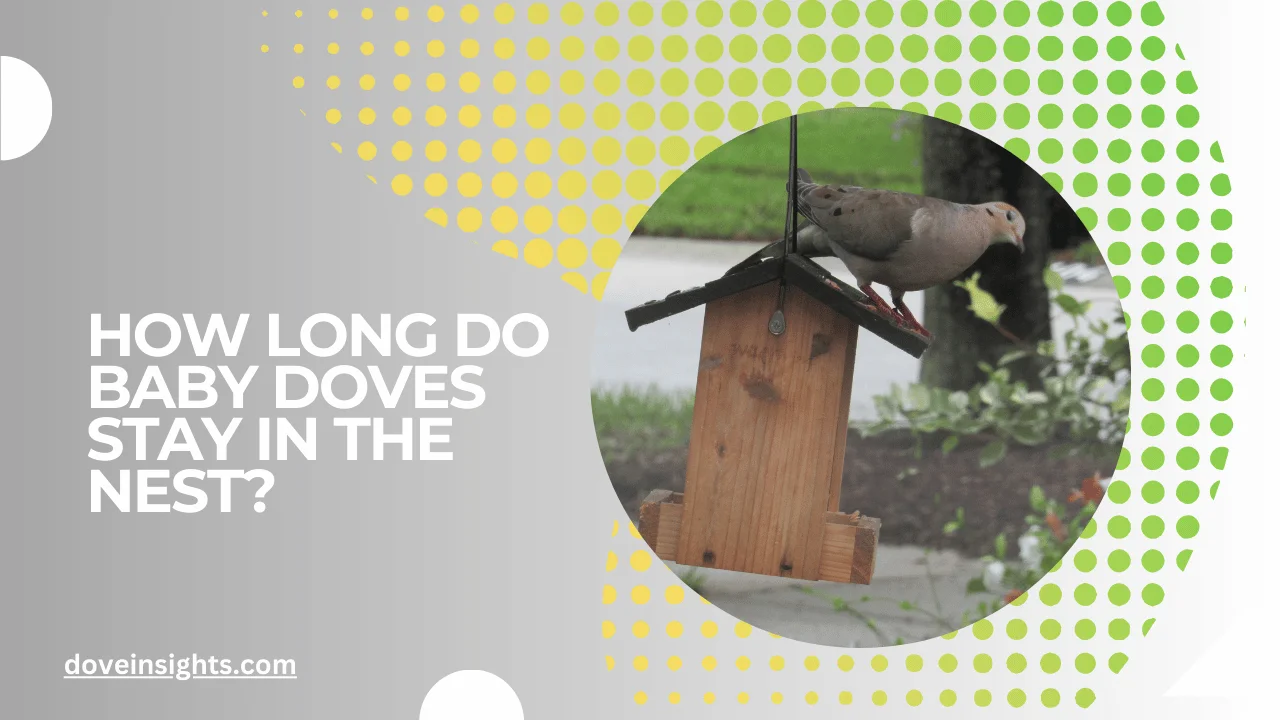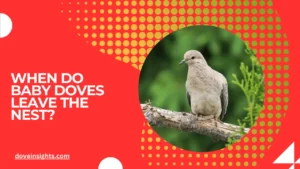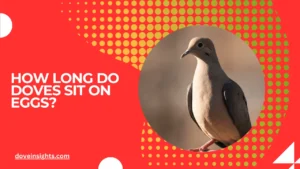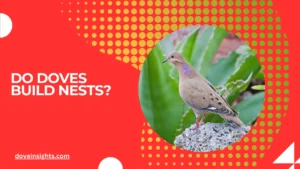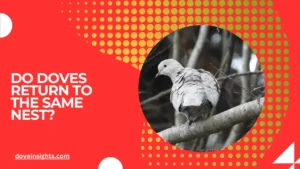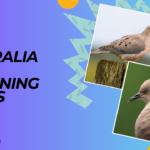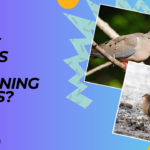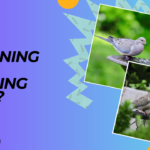The sight of a dove’s nest, carefully constructed and home to delicate hatchlings, is a wonder of nature that captivates birdwatchers and casual observers alike.
Baby doves, or squabs, represent the fragile yet resilient beginnings of life, symbolizing hope and renewal. But how long do these young birds stay in the nest before spreading their wings and taking to the skies? The answer is more than a mere fact—it’s a glimpse into the intricate and purposeful rhythm of nature.
Understanding the nesting period of baby doves is more than satisfying curiosity. It reveals fascinating details about their development, survival strategies, and the tender care provided by their parents.
For bird enthusiasts or those lucky enough to witness a dove family in their backyard, this knowledge enriches the experience and fosters a deeper connection with the natural world.
In this article, we’ll explore every facet of the nesting period for baby doves, from the moment they hatch to their first flights. We’ll delve into the biological milestones, parental behaviors, and environmental factors that shape this critical phase of their lives.
Whether you’re an avid birder, a concerned observer, or simply someone who loves nature’s quiet wonders, this guide offers insights to deepen your understanding and appreciation of these gentle birds.
Contents
The Nesting Process
Doves are meticulous nesters, creating simple yet effective homes to shelter their young. These nests are usually built in trees, shrubs, or even on human-made structures, offering protection and stability.
Mourning doves, for instance, prefer to build their nests from twigs, grass, and leaves, creating a compact and supportive structure.
Once the eggs are laid, the incubation period typically lasts about 14 to 15 days. Both parents take turns incubating the eggs, with the female sitting on them during the night and the male taking over during the day.
This shared responsibility ensures that the eggs are kept warm and safe at all times.
The nest itself serves as a haven for baby doves, shielding them from predators and harsh weather conditions. Its design, though seemingly simple, is crucial for their survival.
Understanding the nesting habits of doves helps us appreciate their dedication to raising their young.
Development of Baby Doves in the Nest
Once the eggs hatch, baby doves, or squabs, are born helpless and featherless, relying entirely on their parents for care. During the first week, parents feed them a nutrient-rich secretion called “crop milk,” which is vital for their growth and development.
By the second week, the squabs begin developing their feathers and strength, preparing for eventual independence.
They practice stretching their wings and exhibit behavioral changes that indicate they are getting ready to leave the nest.
The parents continue to provide warmth and protection, ensuring the squabs are safe from environmental hazards and predators. This phase of development highlights the critical role parental care plays in a dove’s early life.
Factors Influencing Nesting Duration
The amount of time baby doves stay in the nest can vary due to several factors. Temperature and weather conditions play a significant role, as colder climates may extend the nesting period. Conversely, warm, stable weather allows for faster development.
Predation risks from hawks, snakes, or even domestic cats can disrupt the nesting process, forcing the doves to relocate or abandon their nest. Human disturbances, such as construction or excessive noise, can also shorten or disrupt the nesting period.
Different dove species exhibit slight variations in their nesting habits and durations. For instance, Eurasian Collared Doves may have a shorter nesting period compared to Mourning Doves due to their differing environments and behaviors.
What Happens After They Leave the Nest
Once baby doves leave the nest, they enter the fledgling stage, a critical period where they learn to forage and strengthen their wings. Though they leave the nest, the parents continue to support their young by feeding them and teaching them survival skills.
The fledglings face numerous challenges, including predators and learning to navigate their environment. Some may struggle to find adequate food or shelter, making this phase particularly vulnerable.
Despite the risks, fledglings that adapt quickly to their surroundings are more likely to survive. This period emphasizes the resilience and adaptability of young doves as they transition to independence.
How to Support Dove Families in Your Area
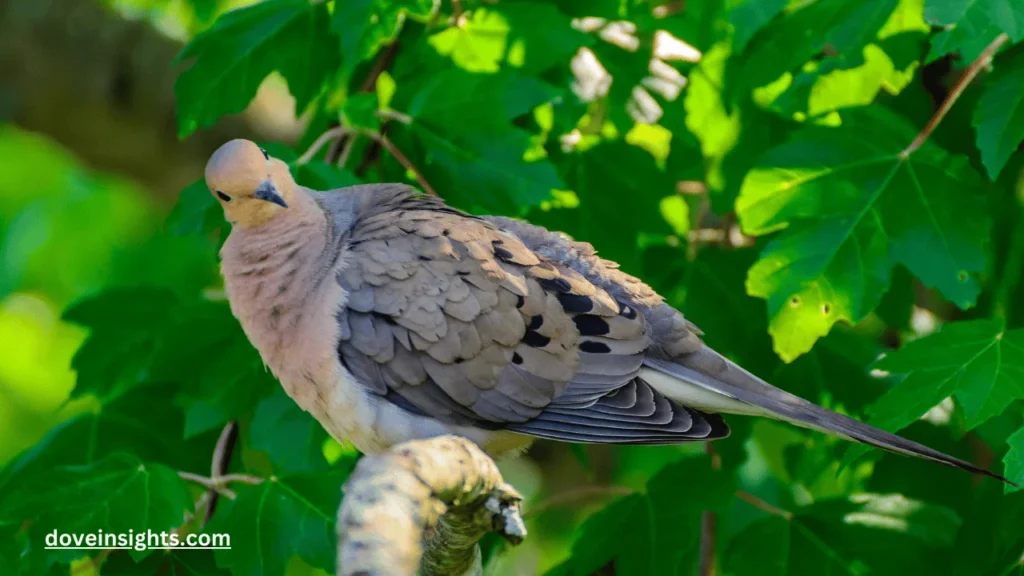
Creating a dove-friendly environment can encourage these gentle birds to nest and thrive in your surroundings. Provide food sources like seeds, fresh water, and nesting materials to make your space inviting for doves.
When observing a dove family, it’s essential to practice non-invasive behaviors. Avoid getting too close to the nest, as disturbances can cause the parents to abandon their young.
If you encounter an abandoned or fallen nest, consult with a local wildlife expert to ensure the proper steps are taken. Supporting doves in your area not only helps the birds but also contributes to the preservation of biodiversity.
Conclusion
Recap Main Points: Baby doves spend approximately two weeks in the nest, during which they undergo significant development and receive critical care from their parents. Factors such as environmental conditions, predators, and human interference influence their nesting duration.
Once they leave the nest, fledglings face challenges that test their resilience. By creating supportive environments and understanding their needs, we can ensure their survival and well-being.
Final Thoughts: Mourning doves symbolize hope, peace, and nature’s gentle rhythm. By appreciating their lifecycle and taking steps to support them, we connect more deeply with the natural world around us.
Small actions, like reducing disturbances and offering resources, contribute to a healthier ecosystem. Together, we can ensure these graceful birds continue to thrive for generations to come.
FAQ’s
How long do baby doves typically stay in the nest?
Baby doves usually stay in the nest for about 12 to 15 days before fledging.
What do baby doves eat in the nest?
They consume crop milk, a nutrient-rich secretion provided by their parents during the first week, followed by seeds as they grow.
Why do parent doves leave the nest?
Parent doves may temporarily leave the nest to forage for food but always return to care for their young.

